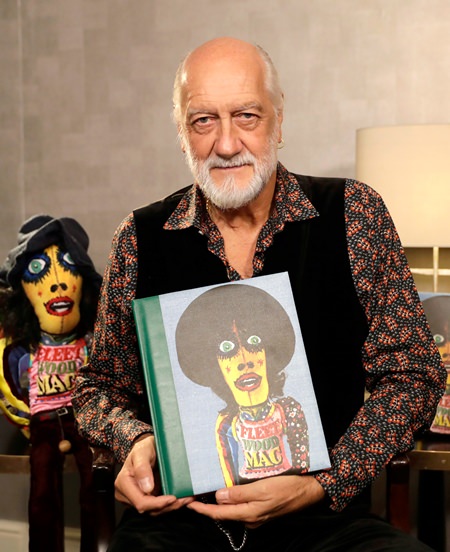
London (AP) — Mick Fleetwood was 16 when he left school, told his parents he wanted to pursue a career in rock ‘n’ roll, and went to London in search of gigs.
 A common tale, true, but this one has a happy ending. Fleetwood fell in with some talented blues enthusiasts, paid (barely) his dues, and soared to stardom with the first incarnation of Fleetwood Mac — and then into the rock ‘n’ roll stratosphere with the second, more pop-oriented version of the band.
A common tale, true, but this one has a happy ending. Fleetwood fell in with some talented blues enthusiasts, paid (barely) his dues, and soared to stardom with the first incarnation of Fleetwood Mac — and then into the rock ‘n’ roll stratosphere with the second, more pop-oriented version of the band.
“School was not a good thing for me,” said Fleetwood, dressed in classic British style, complete with a pocket watch on a chain.
“I had a learning disability, no doubt, and no one understood what those things were. I was sort of drowning at school academically. My parents were like, ‘Go and do it.’ They were picking up on the fact that I had found something. They saw the one thing that I loved with a passion was teaching myself how to play drums at home,” he said. “So they sent me off with a little drum kit to London and the whole thing unfolded.”
Fleetwood didn’t really have to rebel, though rebellion was in the air, and he had the good fortune to make friends early with Peter Green, the supremely talented guitarist whose blues sound shaped the band’s early years.
Green receives the lion’s share of the credit, and the dedication, in Fleetwood’s memoir of the band’s formative period “Love That Burns: A Chronicle of Fleetwood Mac, Volume One: 1967-1974.” It has been published in a limited signed edition by Genesis Publications.
At 70, Fleetwood is anxious to acknowledge his debt to Green, who left the band in 1970.
Fleetwood and bassist John McVie were later joined by Christine McVie, Stevie Nicks and Lindsey Buckingham for a new lineup that hit the jackpot with “Rumours,” one of the best-selling albums of all time.
Fleetwood said the band’s very name reflects Green’s self-effacing approach.
“Peter was asked why did he call the band Fleetwood Mac. He said, ‘Well, you know I thought maybe I’d move on at some point and I wanted Mick and John to have a band.’ End of story, explaining how generous he was.”
The photos and text of “Love That Burns” are really the celebration of an era, capturing the explosion of British music at a time when bands like The Who and The Beatles were vying for the top spots on the charts — and competing with semi-forgotten bands like Freddie and the Dreamers, who actually got top billing over the Rolling Stones on at least one concert poster.
Once Fleetwood Mac made its name as a blues band, the group was able to go to Chicago’s famous Chess Studios to record with some of the great American bluesmen, including a few of the pioneers who had helped perfect the driving Chicago sound.
Fleetwood remembers — with relief — that the longhaired crew of young Brits was able to at least play in the same room as Buddy Guy and Willie Dixon without sounding foolish.
“These are major, major players for anyone who knows anything about blues,” Fleetwood says. “Having that take place, I don’t know what they must have really thought with us funny little English kids walking into their world … I feel good about it to this day that we held our own dignity even with these guys.”
He said the whole experience was “like going to their church and not just being in the congregation but actually doing our version of preaching with them.”
While some fans swear the early Fleetwood Mac was better than the later, far more commercial version, Fleetwood knows the group is identified more with its string of hits, including Bill Clinton’s favorite song, “Don’t Stop,” which earned the band a headlining gig at his inaugural celebration.
This is one reason the book focuses on the first band. Fleetwood doesn’t want it to be forgotten.
“Even as we were doing it (the book), we realized that the band was 50 years old,” he said. “So it’s really about drawing a line in the sand to say that this happened and what caused this. And it’s generally fair to say, especially in the United States, this section of the formation of Fleetwood Mac is not really known about.”





